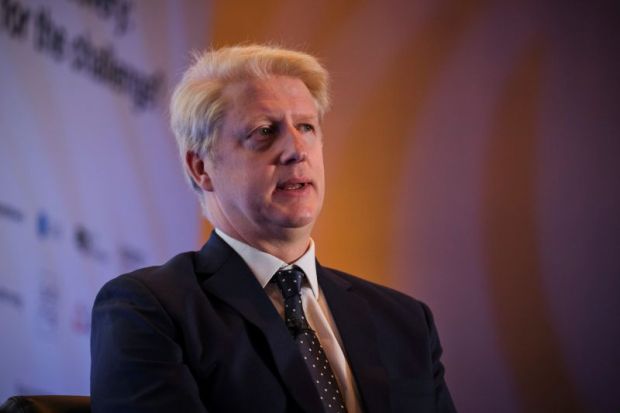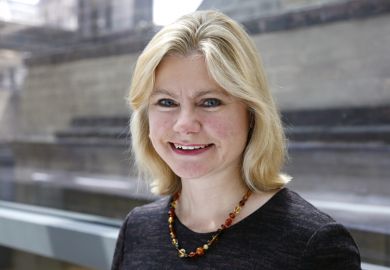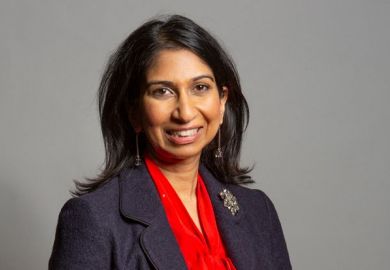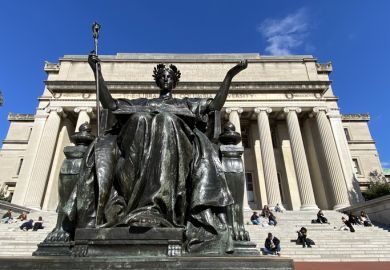British politics is suffering from a “weakening consensus” on the benefits that international students bring to the country, former universities minister Lord Johnson of Marylebone has warned.
The former MP for Orpington said it was ironic that vocal opposition to international study has come from the Conservatives’ right wing when its success was set in motion by the party’s former prime minister Baroness Thatcher.
The sector must combat false narratives if it wants to win the argument, Lord Johnson said as he was announced as one of the first commissioners of the International Higher Education Commission, which was convened by fellow former universities minister, Chris Skidmore.
“The reality is that there is a weakening consensus in British politics on the benefits of international study in our system,” he said at a meeting of the commission.
“The basic policy architecture is still in place, but I think political support for it is weaker than it was two/three years ago. We need to acknowledge that and understand why it’s become weaker and what the sector needs to do to reinforce support for international study and its contribution to the UK.”
He examined some of the many “false narratives” around the debate that, he said, needed to be combated to shore up support – including the argument that foreign students overstay their visas.
Despite being “so categorically asserted as fact” by Theresa May’s administration, Lord Johnson said, it was completely unfounded but is still used by critics today.
The truth, he continued, is that international students are of “great benefit” to the system and are “basically everything you could possibly want” in a very tight labour market.
Lord Johnson also highlighted the mistaken belief that home students were being crowded out of places at universities.
“It’s a complicated argument to make, but we do need to make it better [and explain] that international students create capacity within the system, make it more viable and create places.
“That argument is robust, and we need to confidently assert it – otherwise, we will find the policy environment increasingly difficult.”
Polly Mackenzie, chief social purpose officer at the University of the Arts London, agreed. “We simply cannot afford to provide as many home student places as we do without the subsidy from international students,” she said.
She added that her university had been able to expand because of its high number of international students, saying that it could not afford to do as much research without them and their contributions.
“This narrative that international students are cannibalising places for home students does need to be squashed,” she said.
Lord Johnson said it was ironic that some of the loudest critics of internationalisation were on the right of the Tory party because the UK’s success in the field was a “great Thatcherite reform”.
“It’s doubly ironic as international students are hugely supportive of the recent Conservative government’s two big policy ideas – global Britain and levelling up,” he said. “International students contribute meaningfully to both of those.”
Nick Hillman, director of the Higher Education Policy Institute, said international students who return to their home countries can contribute to Britain’s global reputation.
“The soft power benefits are incredible – they are mainly non-financial, but they are also financial because they help us with trade deals,” he said.
Register to continue
Why register?
- Registration is free and only takes a moment
- Once registered, you can read 3 articles a month
- Sign up for our newsletter
Subscribe
Or subscribe for unlimited access to:
- Unlimited access to news, views, insights & reviews
- Digital editions
- Digital access to THE’s university and college rankings analysis
Already registered or a current subscriber? Login








